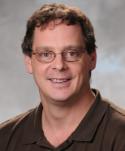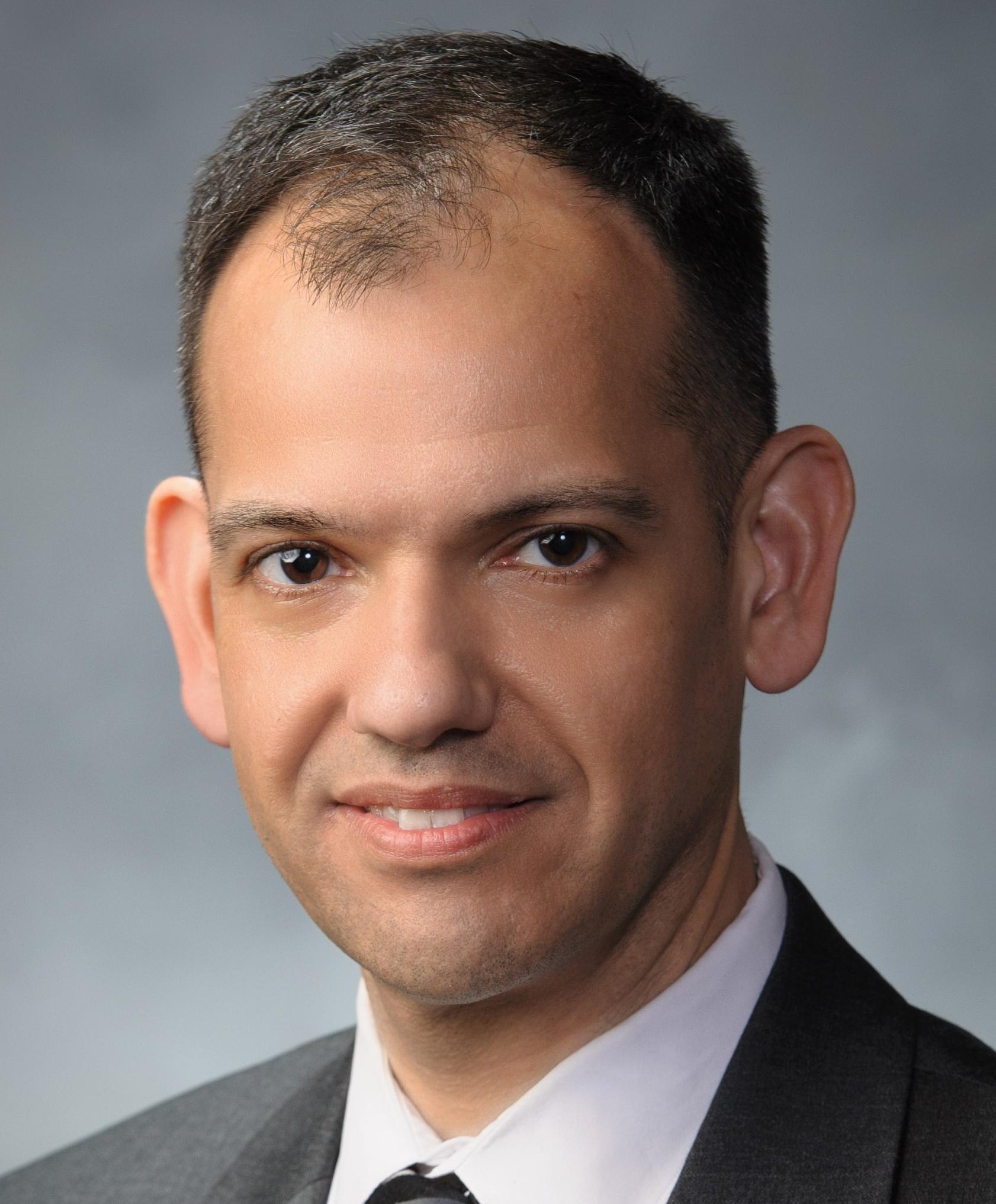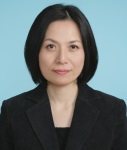Organized by:
Missouri University of
Science & Technology
Systems Engineering Graduate Program
Smart Engineering Systems Laboratory
600 W. 14th St.
Rolla, MO 65409-0370
Phone: 573-341-6576
Email: complexsystems@mst.edu
2014 Conference Plenary Speakers
Click photo below for speaker's biography/presentation information
|
|
|
|
|
|
|
|
||||||
|
|
|
|
| 3514131535 |

|
Chris Paredis, PhD Title: Fundamental Research in Systems Engineering |
 Presentation |
Abstract:
Systems Engineering as a discipline has evolved over the years from best practices and lessons learned while developing increasingly complex systems primarily in the aerospace and defense domains. As we continue to strive towards improving systems engineering methods and towards applying systems engineering principles in an ever-broadening array of application domains, it is important to take a step back and look at the theoretical foundations of systems engineering. Only by rigorously identifying and expanding these theoretical foundations can we hope to keep pace with the rate of innovation in the systems we engineer and the rate of change in the global context in which they operate. Given that our goal is to “improve” systems engineering, a fundamental question in this respect is: What is our criterion for “goodness”? In his presentation, Dr. Paredis will argue why "value" should be this criterion. After defining what is meant by “value”, several simple value-driven models will be proposed to explain current practices in systems engineering and design. A theory of systems engineering could evolve by further expanding and refining a suite of explanatory models, from which testable hypotheses can be derived, and for which in turn empirical evidence can be collected to confirm or falsify the models and corresponding hypotheses. This, unfortunately, is not yet common practice in our research community. The presentation will end with a short introduction of two NSF programs that provide research funding in this area: the Systems Science program and the Engineering and Systems Design program.
Bio:
Dr. Chris Paredis is Program Director for the Engineering and Systems Design (ESD) and Systems Science (SYS) programs at the National Science Foundation. He is also Professor of Mechanical Engineering in the G.W. Woodruff School of Mechanical Engineering, and in the H.M. Stewart School of Industrial and Systems Engineering at Georgia Tech, Atlanta, USA. He is a Woodruff Faculty Fellow and Director of the Model-Based System Engineering Center. He holds graduate degrees in Mechanical Engineering from the Catholic University of Leuven (Belgium) and in Electrical and Computer Engineering from Carnegie Mellon University.
Dr. Paredis' research focuses on Model-Based Systems Engineering, combining aspects of decision theory, information technology, simulation, and systems theory to support the design of complex mechatronic systems. In these areas, he has published more than 140 refereed book chapters, journal articles and conference papers. He has made significant contributions to the development of the theory, methods and tools for decision making in design and systems engineering, and has developed several decision support tools using the SysML and Modelica languages. As Director of the Model-Based Systems Engineering Center, he leads a group of 11 faculty members towards the development of a next generation of systems engineering methods that are value-driven, model-based and human-centered.
He is active within the Object Management Group (OMG), where he served on the SysML Revision Task Force and where he has led the development of the SysML-Modelica Transformation Specification. He was a founding board member of the North America Modelica Users' Group, and is a member of the Technical Advisory Board for Integrated Model-Centric Engineering Program at NASA/JPL. He is past Chair of the ASME Computers and Information in Engineering division and has served as Conference Chair for the 2013 Conference on Systems Engineering Research (CSER'13) and the 2007 Computers and Information in Engineering Conference (CIE'07).
Dr. Paredis has served as Associate Editor for the SAE Journal of Commercial Vehicles and the ASME Journal of Mechanical Design. He currently serves as co-Editor of the ASME book series, "Advances in Computers and Information in Engineering Research." He received the 2007 CETL/BP Junior Faculty Teaching Excellence Award, the 2007 SAE Ralph R. Teetor Educational Award, and the 2011 ASME CIE Excellence in Research Award.

Bio:
Robie is Vice President, Technology and Innovation at Lockheed Martin. His responsibilities include leading Lockheed Martin’s enterprise-level technology innovation strategy to ensure the Corporation’s continuing ability to develop and leverage new technologies to help solve its customers’ most challenging problems. In this role, he works with the corporation’s Engineering and Technology Council and Enterprise Operations leaders to develop and actively manage an enterprise technology roadmap aligned with business area needs, focusing on innovation. He also works with Lockheed Martin’s university program with the goal of fostering and transitioning research from leading U.S. research universities, as well as liaison with U.S. government organizations critical to the formation of technical policy and the execution of research.

Abstract:
The world continues to generate quintillion bytes of data daily, leading to the pressing needs for new efforts in dealing with the grand challenges brought by Big Data. Today, there is a growing consensus among the computational intelligence communities that data volume presents an immediate challenge pertaining to the scalability issue. However, when addressing volume in Big Data analytics, researchers in the data analytics community have largely taken a one-sided study of volume, which is the “Big Instance Size” factor of the data. The flip side of volume which is the dimensionality factor of Big Data, on the other hand, has received much lesser attention.
In this talk, special focus is placed on the relatively under-explored topic of “Big Dimensionality”, wherein the explosion of features (variables) brings about new challenges to computational intelligence. We begin with an analysis on the origins of Big Dimensionality. The evolution of feature dimensionality in the last two decades is then discussed using popular data repositories considered in the data analytics and computational intelligence research communities. Subsequently, some of the state-of-the-art feature selection schemes reported in the field of computational intelligence are reviewed to reveal the inadequacies of existing approaches in keeping pace with the emerging phenomenon of Big Dimensionality.
Bio:
Jose C. Principe (M’83-SM’90-F’00) is a Distinguished Professor of Electrical and Computer Engineering and Biomedical Engineering at the University of Florida where he teaches advanced signal processing, machine learning and artificial neural networks (ANNs) modeling. He is BellSouth Professor and the Founder and Director of the University of Florida Computational NeuroEngineering Laboratory (CNEL) www.cnel.ufl.edu . His primary area of interest is processing of time varying signals with adaptive neural models. The CNEL Lab has been studying signal and pattern recognition principles based on information theoretic criteria (entropy and mutual information).

|
Mika Sato-Ilic, PhD Title: Clustering Innovations in Data Science |
|
Abstract:
There is an increasing necessity to analyze today’s vast and complex societal data. However, conventional data analysis that is dependent on statistical methods cannot deal with the often complex data types that form this data. Clustering is one type of data analysis that allows us to detect and characterize the latent structure of data by classifying objects based on similarities among the objects. This clustering analysis has gained interest as an adaptive approach to large and complex data. This presentation outlines clustering analysis and introduces innovative techniques of clustering-based models for adapting large and complex data by using the obtained cluster as a scale.
Bio:
Prof. Mika Sato-Ilic currently holds the position of Professor in the Faculty of Engineering, Information and Systems, at the University of Tsukuba, Japan. She is the founding Editor-in-Chief of the International Journal of Knowledge Engineering and Soft Data Paradigms, Associate Editor of Neurocomputing, Associate Editor of Information Sciences, Regional Editor of International Journal on Intelligent Decision Technologies and Associate Editor of the International Journal of Innovative Computing, Information and Control Express Letters, as well as serving on the editorial board of several other journals. In addition, she was a Council of the International Association for Statistical Computing (a Section of the International Statistical Institute), a Senior Member of the IEEE where she holds several positions including the Vice-Chair of the Fuzzy Systems Technical Committee of the IEEE Computational Intelligence Society. In addition, she has served on several IEEE committees including the administration committee, program co-chair, and special sessions co-chair. Her academic output includes 4 books, 9 book chapters and over 100 journal and conference papers. Her research interests include the development of methods for data mining, multi-dimensional data analysis, multi-mode multi-way data theory, pattern classification, and computational intelligence techniques for which she has received several academic awards.

|
Cheryl McIntyre Title: Embracing Complexity and Advancing |
|
Bio:
Cheryl McIntyre is Lockheed Martin’s Corporate Director of Complex Systems. In this position, Ms. McIntyre is responsible for advancing the engineering enterprise by maturing innovative engineering practices that embrace complex systems development. In her 29 years with Lockheed Martin, she has held key leadership roles managing the design, development, and fielding of complex large-scale systems and various engineering organizations. Ms. McIntyre graduated from State University of New York College at Plattsburgh with a bachelor’s degree in Computer Science, and is recognized as a Distinguished Alumna. She is a member of the Foundation Board of Directors for the Museum of Science & Technology (MOST), the Institute of Electrical and Electronics Engineers (IEEE) Computer Society Industry Advisory Board, and the National Defense Industry Association (NDIA) Software Experts Panel and Software Committee.

Abstract:
The world continues to generate quintillion bytes of data daily, leading to the pressing needs for new efforts in dealing with the grand challenges brought by Big Data. Today, there is a growing consensus among the computational intelligence communities that data volume presents an immediate challenge pertaining to the scalability issue. However, when addressing volume in Big Data analytics, researchers in the data analytics community have largely taken a one-sided study of volume, which is the “Big Instance Size” factor of the data. The flip side of volume which is the dimensionality factor of Big Data, on the other hand, has received much lesser attention.
In this talk, special focus is placed on the relatively under-explored topic of “Big Dimensionality”, wherein the explosion of features (variables) brings about new challenges to computational intelligence. We begin with an analysis on the origins of Big Dimensionality. The evolution of feature dimensionality in the last two decades is then discussed using popular data repositories considered in the data analytics and computational intelligence research communities. Subsequently, some of the state-of-the-art feature selection schemes reported in the field of computational intelligence are reviewed to reveal the inadequacies of existing approaches in keeping pace with the emerging phenomenon of Big Dimensionality.
Bio:
Yew-Soon Ong is currently an Associate Professor and Director of the Center for Computational Intelligence, Director of the A*Star SIMTECH-NTU Joint Lab on Complex Systems at the School of Computer Engineering Nanyang Technological University, Singapore and Programme Principal Investigator of the Rolls-Royce@NTU Corporate Lab. He received a PhD degree on Artificial Intelligence in complex design from the Computational Engineering and Design Center, University of Southampton, United Kingdom in 2003. His current research interest in computational intelligence spans across memetic computing, evolutionary computation, machine learning and agent-based systems. He is the founding Technical Editor-in-Chief of Memetic Computing Journal, founding Chief Editor of the Springer book series on studies in adaptation, learning, and optimization, Associate Editor of the IEEE Transactions on Evolutionary Computation, the IEEE Transactions on Neural Networks & Learning Systems, IEEE Computational Intelligence Magazine, IEEE Transactions on Cybernetics, Soft Computing, International Journal of System Sciences and others. He has coauthored over 120 refereed publications and his research grants in the last five years amounts to a total of more than 25 million Singapore dollars. These comprises of research funding from both national and international partners that includes the Singapore National Grid Office, A*STAR, Singapore Technologies Dynamics, Boeing Research & Development (USA), Rolls-Royce Singapore and Honda Research Institute Europe (Germany), National Research Foundation and Media Development Authority- Singapore-MIT GAMBIT Lab. Presently, he Chairs the IEEE Computational Intelligence Society Intelligent Systems and Applications Technical Committee. His research work on Memetic Algorithm was featured by Thomson Scientific's Essential Science Indicators as one of the most cited emerging area of research in August 2007. Recently, he also received the 2014 IEEE Computational Intelligence Magazine Outstanding Paper Award and the 2012 IEEE Transactions on Evolutionary Computation Outstanding Paper Award for his work pertaining to Memetic Computing. In teaching, he has also received teaching awards including the Nanyang Excellence Award for Teaching in 2008, Most Popular Lecturer Award 2009, and recently invited as Fellow of Renaissance Engineering Programme at Nanyang Technological University.

|
Dave Welsh |
 Presentation |
Abstract:
Cities have grown into complex “systems of systems” of ageing infrastructures and ever increasing operating costs. The new demands on private personal data, and the growing socio-economic problems are only compounded with an urgent global ecological agenda. Natural disasters like Hurricane Sandy continue to hit home on the need for cities to develop a strong resiliency agenda. As of 2008, most of the world’s population now belongs to cities. In the next decades cities will grow at an even more alarmingly rate while new technologies unlock massive streams of data about city infrastructures through platforms like the Internet of Things (IoT). As these forces collide, every city is becoming its own unique civic laboratory—a place where technology and policy is adapted in novel ways to meet very practical local needs. How we built cities so far doesn’t scale for the future, and it is well recognized by agencies like the World Bank that something transformative has to change. We live in a complex and ever adaptive world, but what is the new science of a Smart City? This presentation will look at the latest transformative Smart City thinking from a number of different viewpoints, from the city architect and urban designers perspective, to the city administration and citizens new governance perspective, to the role Information and Communications Technologies is having in in bringing us out of the industrial age to the information age and hopefully to an age of innovation.
Bio:
Dave Welsh has been at Microsoft Corporation for more than 12 years, and works in Microsoft’s Corporate Standards Group. Dave covers Microsoft’s global policy on a variety of different standards agendas, these days largely focused on Smart Cities and also IoT. In his job Dave works with the Microsoft development teams (including Windows and Office) on their new Cloud services, as well as also Microsoft’s field operations globally.
Educated at Concordia University Center for Building Studies (Montreal) and the Technical University of Eindhoven, Department of Architecture (The Netherlands), Dave specialized in Computer Aided Architectural and Building Design back in the 1970’s.
Dave has been both an engineer and manager in different countries across a variety of industry domains from buildings and construction, to transportation, to international trade logistics, to manufacturing to online retail as one of the early Amazon.com employees back in the 1990’s.
Going back to the 80’s, Dave has been active with a number of different international, US and EU standards organizations on a wide range of topics. He has co-authored different ISO standards, chaired different technical committees, was the United Nations Standards Rapporteur within the UN’s Center for Trade Facilitation, a past member of the International Chamber of Shipping (London) and their Liaison to World Customs Council (Brussels). More recently he was US Head of Delegation to several US national committees to ISO, currently is Chair of the US national committee to ISO/IEC on Systems and Software Engineering standards, and he is also very involved with a number of Consortia on Smart Cities and also Consortia on the Internet of Things (IoT).









